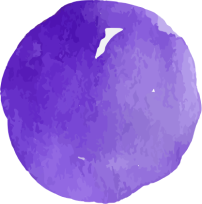Carlos Mirapeix, 2013. The 16 + 1 interview. Reformulation, Winter, p.51.
1) Welcome to the interview - how are you doing?
Quite well, despite the economic context in our country (Spain), we are still working for the government and they are still keeping money for the health programme.
2) In another life i would have been a?
Philosopher in ancient Greece, like someone with a group of people thinking about the complexity of the world.
3) Freud, Jung or Pavlov?
Freud; he was a 19th Century neurologist and today would be enthusiastic about the knowledge we now have regarding how the complex machine inside our head works; particularly the links between the brain and sociological surroundings. His essay on “Psychology for neurologists” was only published posthumously.
4) Desert island luxury?
What an odd interview this is! I would like a book on the history of philosophy.
5) Bach, Mahler or Radiohead?
Bach; the harmony and sensibility. All his music is felt in the body and in the heart.
6) Greatest hero/heroine?
The very early Spanish mystics, the hermits who retired into the mountains in the 9th Century. My greatest hero is San Genadio in Santiago de Peñalba en Leon, España. He was the Bishop of Astorga and a son of a king, who became a hermit.
7) Cat, dog or Nintendo?
A dog as I have a beautiful dog called Doku, who is a sheep dog. Sheep dogs are very loving.
8) Dream meal?
Curry chicken in the Goa style. I have learnt to cook this from a very good master; an Indian friend who cooks it as long as I help him as his Sous Chef and prepare the vegetables.
9) Who are you in the 'CAT Village'?
I am the person who introduced CAT to Spain in 1993 and organized training in Spain starting in 1994. I’ve run over 7 programs now and I direct a personality disorder CAT training program at Deusto University.
10) Why did you become a psychotherapist?
When I was a child I played with toys and enjoyed them, but after a couple of days I tried to understand the mechanism of the toy. I am enthusiastic about understanding how people work; something complex and mysterious.
11) Who has been the biggest influence on the way you work?
Tony Ryle. I felt like a heretic when I trained psychoanalytically, so I got thrown out and I searched for someone who was doing similar work to me. Tony not only did similar work, also he developed these ideas much further and more thoughtfully than I could have done.
12) Recommended reading?
Daniel Siegel's book, 'Mindsight' (2011)
13) What to you hope to achieve with clients?
Help them to become freer human beings
14) How do you try to achieve this?
By helping them to understand how their minds work and how they are trapped in their own mental traps and unhealthy interpersonal relationships and how to find a new way in themselves and outside with others in which they can be free; in sum, to help them flourish.
15) What is your number one CAT concept?
Multiple Self States Model; understanding individuals through this theoretical concept is helpful by finding damaged parts and also healthy, creative parts within a person that are blocked.
16) What do you see as the challenges for CAT in the future?
To incorporate new strategies of research from neurobiology to demonstrate the effectiveness of CAT.
Are there any other question you wish we had asked?
Yes, something about the actual social economic situation. I feel comfortable with a Marxist’ analysis and Tony Ryle’s Marxist views. A small group of people with high levels of economic power are cheating and exploiting the vast majority of this society.
Thank you very much.


